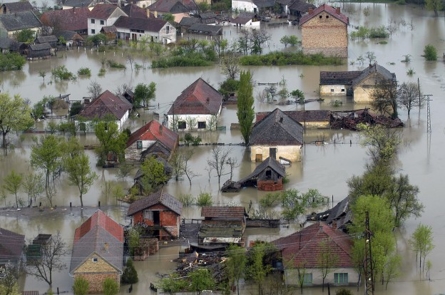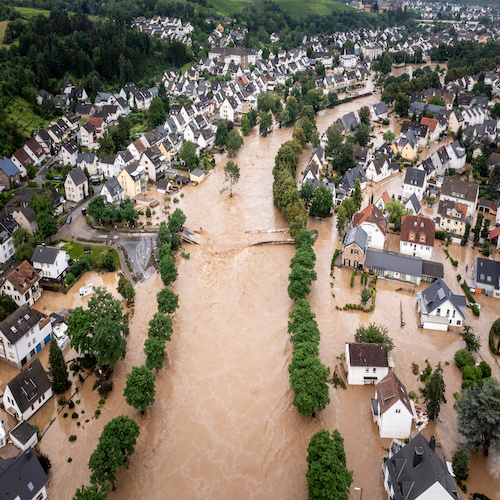
Is My House in a Flood Zone?
If you've ever wondered, "Am I in a flood zone?" the answer is yes. Everyone lives in some sort of a flood zone – your home is either at a low, moderate or high risk for flooding. According to FloodSmart.gov, flood zones "are land areas identified by the Federal Emergency Management Agency (FEMA)," and each zone has a specific designation for its flood risk. Knowing your flood zone can help you determine how much flood insurance you may need and how to prepare for a flood appropriately.
Flood Zone Maps and Information
FEMA has developed a handy flood hazard mapping program that identifies the flood risk for areas throughout the United States. You can search for your flood zone via the FEMA Flood Service Map Center. Simply enter an address, location or specific coordinates and hit "search."
Your search results will open on a new page that includes a map for the address, location or coordinates that were searched. Use the buttons on the page to view, download and print your selected flood map or open the interactive flood map to explore further. The locator map will display various flood map boundaries available for your area of interest. You can even choose to view historic and pending maps and other relevant local information.
How are Flood Risks Determined?
A Flood Insurance Study is conducted by FEMA to determine an area's risk for floods. FloodSmart.gov explains that this comprehensive study considers statistical data from "river flow, storm tides, hydrologic and hydraulic analyses, and rainfall and topographic surveys." This data is compiled and used to create the flood hazard maps for communities throughout the United States.
Communities that are located in floodplains or experience weather events like strong coastal storms or monsoons are more likely to appear as high risk, while an inland or high-altitude community may be at minimal risk for flooding.
Why is Flood Zone Mapping Important?
The National Flood Insurance Program uses flood zone mapping as the basis for its regulations and flood insurance requirements. Flood zone mapping allows anyone to easily determine their community's flood risk, whether you're looking at purchasing a new property or simply want to know if flooding is likely for your current neighborhood.
Knowing your flood zone is a good way to prepare for floods and water damage events. If you find that your home is in a high risk flood zone, know your evacuation route and have a plan that includes a supply list and what to do after a flood, including when to call ServiceMaster Restore for water extraction and complete remediation services.



